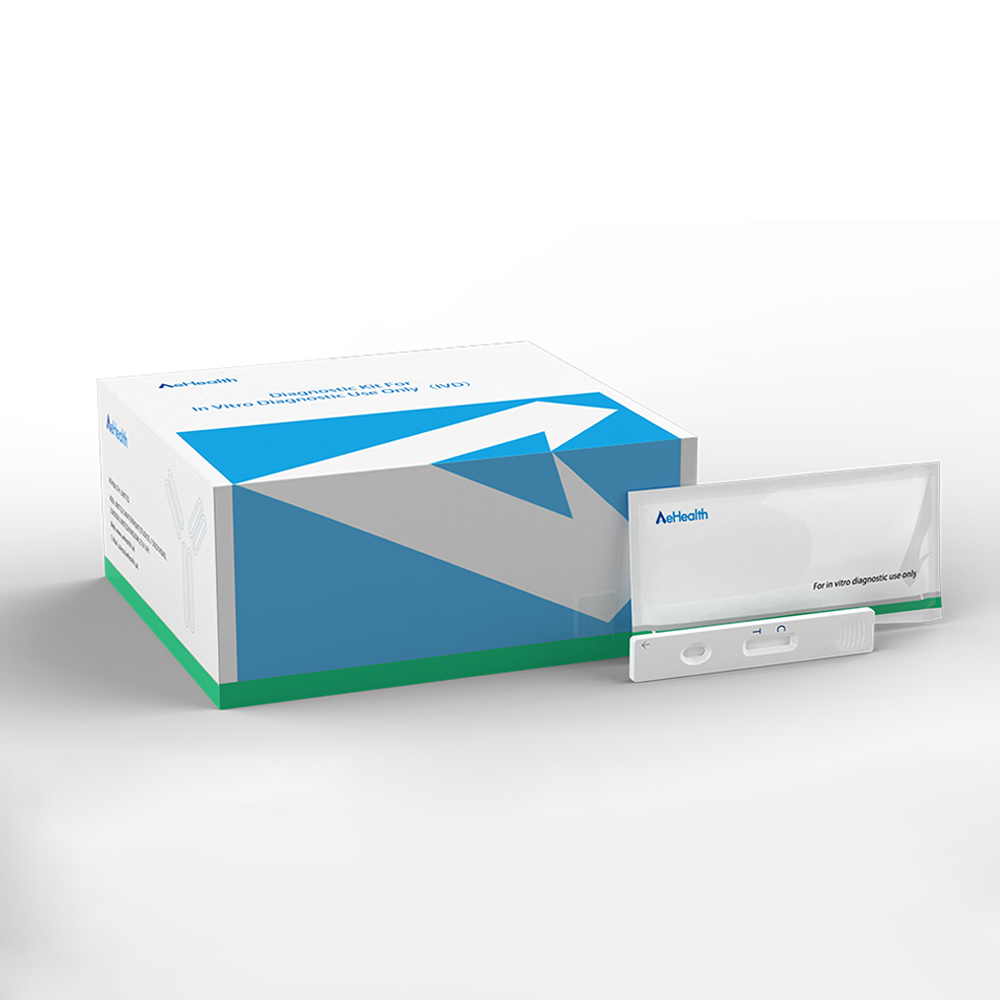
Performance Characteristics
Detection Limit: 0.1ng/mL;
Linear Range: 0.1~100 ng/mL;
Linear correlation coefficient R ≥ 0.990;
Precision: within batch C.V. is ≤ 15%; between batches C.V. is ≤ 20%;
Accuracy: the relative deviation of the measurement results shall not exceed ± 15% when standardized accuracy calibrator is tested.
1. Store the detector buffer at 2~30℃. The buffer is stable up to 18 months.
2. Store Aehealth Ferritin Rapid Quantitative test cassette at 2~30℃, shelf life is up to 18 months.
3. Test cassette should be used within 1 hour after opening the pack.
Procalcitonin (PCT) is the hormone of calcitonin, which is composed of 116 amino acids. Its molecular weight is about 12.8kd. PCT is a glycoprotein without hormone activity, and it is also an endogenous non steroid anti-inflammatory substance. It is produced by thyroid gland under non infection condition. As early as 1993, it was found that the higher the PCT level, the more serious the infection and the worse the prognosis were when the body had serious infection. The relationship between PCT level and the severity of sepsis was demonstrated for the first time. It has been reported in the literature that PCT in serum starts to rise within 2-4 hours, reaches its peak within 8-24 hours, and lasts for days or weeks. When it is higher than a certain value, the risk of severe sepsis and septic shock should be considered. ROC curve showed that PCT > leukocyte count > C-reactive protein > neutrophil percentage under the curve, PCT was superior in sensitivity and specificity to leukocyte count, C-reactive protein, neutrophil percentage and other indicators, and related to the severity of the disease. Therefore, PCT is an ideal index for the auxiliary diagnosis of serious bacterial infection, sepsis and other diseases. It is highly sensitive and specific to systemic bacterial infection, sepsis and septicemia.

